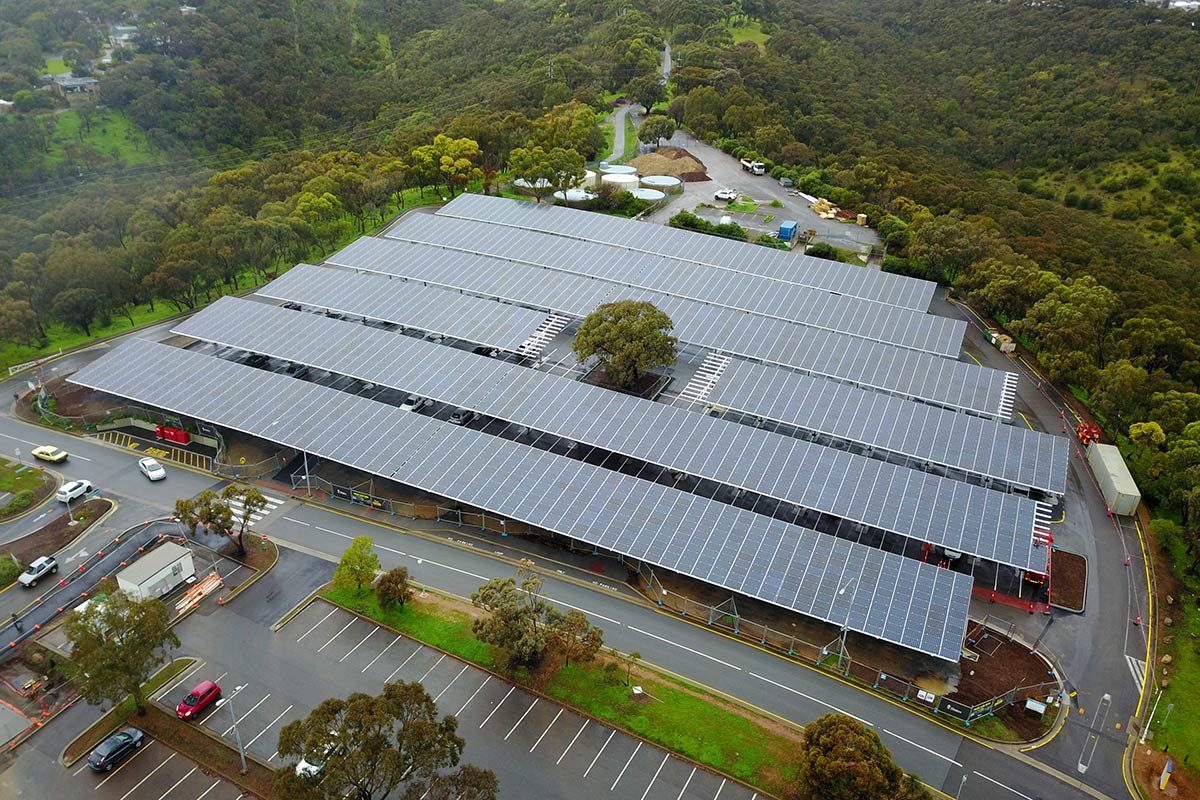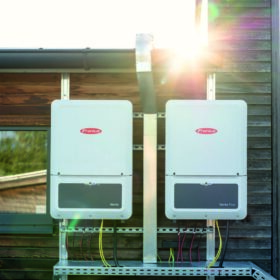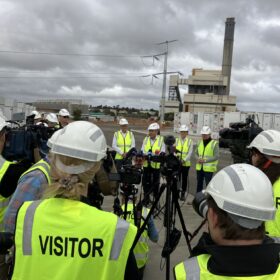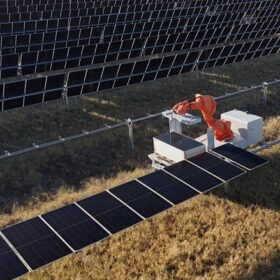As part of its ongoing efforts to become a carbon-positive institution, Flinders University recently upped the ante with a $2.4 million investment in solar and sustainability initiatives. The Flinders Bedford Park campus already covers one-fifth of its electricity needs with some 6,000 panels deployed on a carpark and multiple rooftops. And the university now aims to lift this to one-third through an additional $1.45 million investment in solar through next year.
“This will see us roll out more panels across our rooftops, create solar-covered walkways and shelters, and begin planning another large solar carport or ground-mounted solar array. With all this energy generated on campus, we are also investigating energy storage,” Vice-Chancellor Professor Colin Stirling said.
Stirling made the announcement at the formal launch of Flinders University’s massive new solar carport, which was designed by Solgen Energy and built by Tonkin Schutz. The solar array features 4,136 panels and is part of a broader 1.8 MW solar fleet, when combined with an additional 1,681 panels that have already been installed across six rooftops.
These installations came with a price tag of $4.895 million, but they are expected to pay for themselves within seven years. As announced earlier, the solar carport sets the scene for the introduction of autonomous campus shuttles that run on renewable energy. The university also plans to set up charging points for plug-in electric vehicles, to encourage their use on campus by providing access to free solar energy.
At the solar carport launch late last week, the university allocated an additional $950,000 in funding to develop initiatives under its new sustainability plan, which focuses on the 10 top areas of importance to the Flinders community. The new initiatives include installing electric-vehicle charging stations, decarbonising the university’s vehicle fleet, eliminating single-use plastics, enhancing the lake on the Bedford Park campus and turning it into a demonstration site for sustainability initiatives, and reducing, reusing and recycling more materials on campus.
“There will be many opportunities for these projects to be used in our teaching and learning, enabling students and staff to experience the technology of the future and encouraging partnerships with industry, government and the community to maximise benefits,” Stirling said.
This content is protected by copyright and may not be reused. If you want to cooperate with us and would like to reuse some of our content, please contact: editors@pv-magazine.com.









By submitting this form you agree to pv magazine using your data for the purposes of publishing your comment.
Your personal data will only be disclosed or otherwise transmitted to third parties for the purposes of spam filtering or if this is necessary for technical maintenance of the website. Any other transfer to third parties will not take place unless this is justified on the basis of applicable data protection regulations or if pv magazine is legally obliged to do so.
You may revoke this consent at any time with effect for the future, in which case your personal data will be deleted immediately. Otherwise, your data will be deleted if pv magazine has processed your request or the purpose of data storage is fulfilled.
Further information on data privacy can be found in our Data Protection Policy.